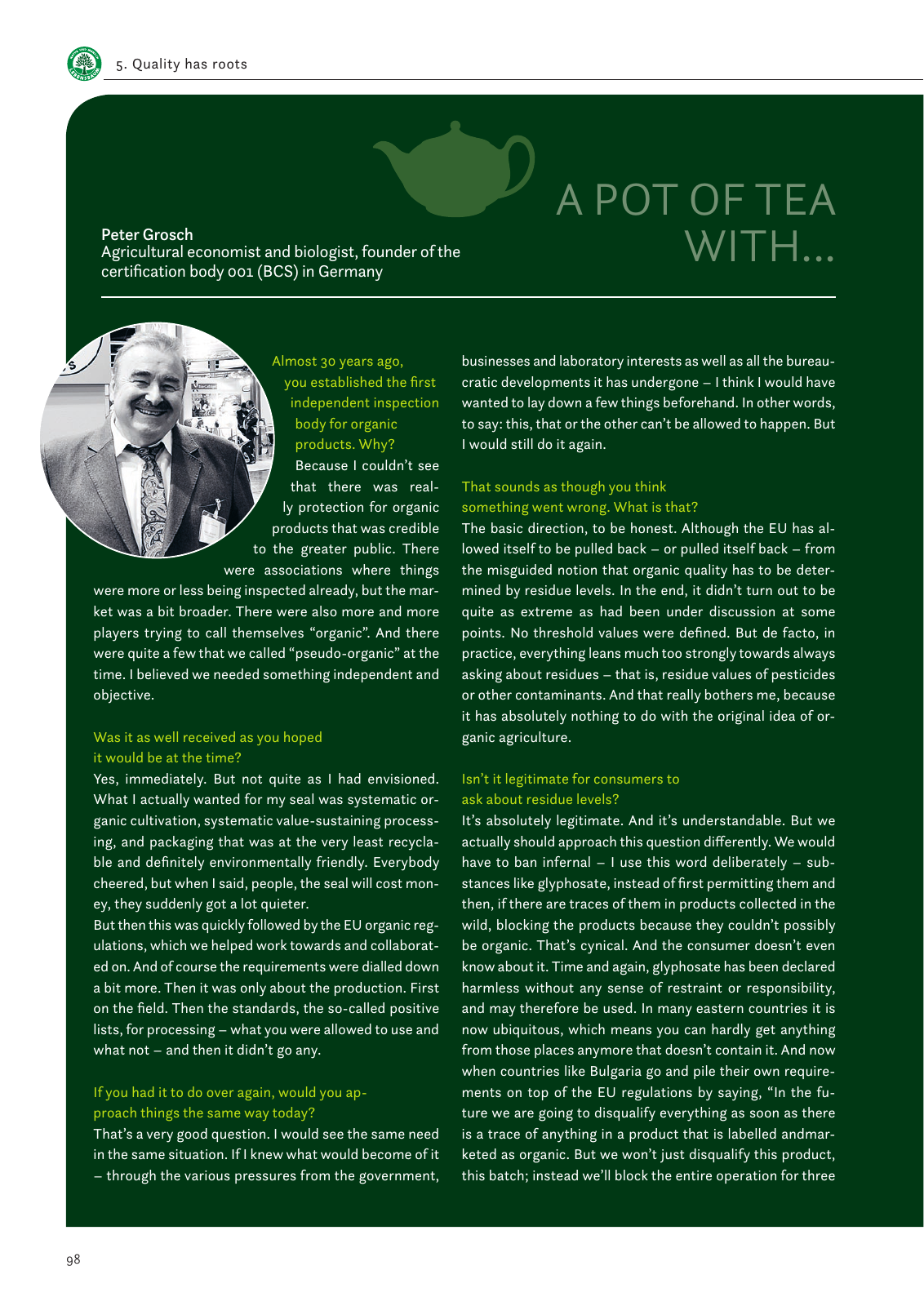98 5 Quality has roots Almost 30 years ago you established the first independent inspection body for organic products Why Because I couldn t see that there was real ly protection for organic products that was credible to the greater public There were associations where things were more or less being inspected already but the mar ket was a bit broader There were also more and more players trying to call themselves organic And there were quite a few that we called pseudo organic at the time I believed we needed something independent and objective Was it as well received as you hoped it would be at the time Yes immediately But not quite as I had envisioned What I actually wanted for my seal was systematic or ganic cultivation systematic value sustaining process ing and packaging that was at the very least recycla ble and definitely environmentally friendly Everybody cheered but when I said people the seal will cost mon ey they suddenly got a lot quieter But then this was quickly followed by the EU organic reg ulations which we helped work towards and collaborat ed on And of course the requirements were dialled down a bit more Then it was only about the production First on the field Then the standards the so called positive lists for processing what you were allowed to use and what not and then it didn t go any If you had it to do over again would you ap proach things the same way today That s a very good question I would see the same need in the same situation If I knew what would become of it through the various pressures from the government businesses and laboratory interests as well as all the bureau cratic developments it has undergone I think I would have wanted to lay down a few things beforehand In other words to say this that or the other can t be allowed to happen But I would still do it again That sounds as though you think something went wrong What is that The basic direction to be honest Although the EU has al lowed itself to be pulled back or pulled itself back from the misguided notion that organic quality has to be deter mined by residue levels In the end it didn t turn out to be quite as extreme as had been under discussion at some points No threshold values were defined But de facto in practice everything leans much too strongly towards always asking about residues that is residue values of pesticides or other contaminants And that really bothers me because it has absolutely nothing to do with the original idea of or ganic agriculture Isn t it legitimate for consumers to ask about residue levels It s absolutely legitimate And it s understandable But we actually should approach this question differently We would have to ban infernal I use this word deliberately sub stances like glyphosate instead of first permitting them and then if there are traces of them in products collected in the wild blocking the products because they couldn t possibly be organic That s cynical And the consumer doesn t even know about it Time and again glyphosate has been declared harmless without any sense of restraint or responsibility and may therefore be used In many eastern countries it is now ubiquitous which means you can hardly get anything from those places anymore that doesn t contain it And now when countries like Bulgaria go and pile their own require ments on top of the EU regulations by saying In the fu ture we are going to disqualify everything as soon as there is a trace of anything in a product that is labelled andmar keted as organic But we won t just disqualify this product this batch instead we ll block the entire operation for three A POT OF TEA WITH Peter Grosch Agricultural economist and biologist founder of the certification body 001 BCS in Germany

Hinweis: Dies ist eine maschinenlesbare No-Flash Ansicht.
Klicken Sie hier um zur Online-Version zu gelangen.
Klicken Sie hier um zur Online-Version zu gelangen.